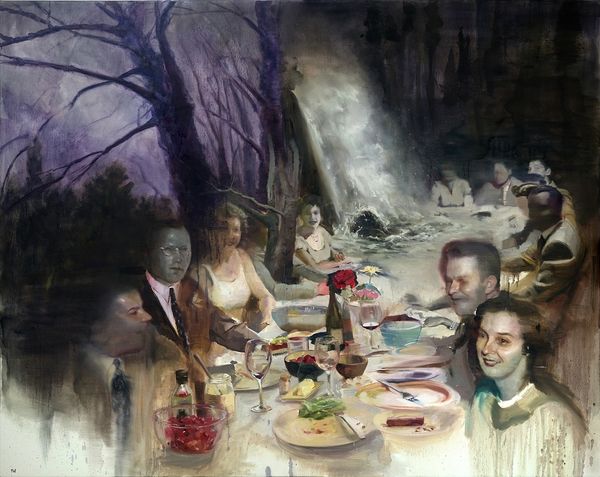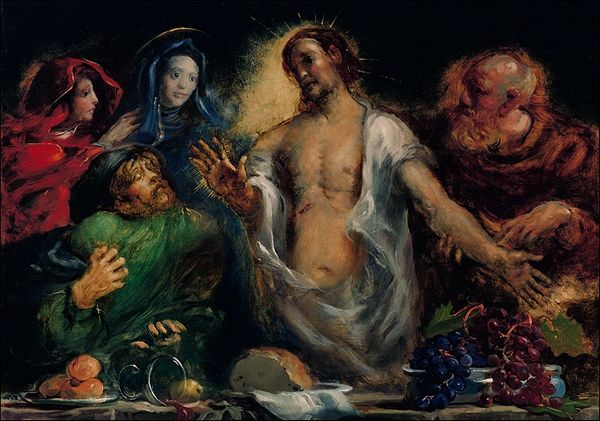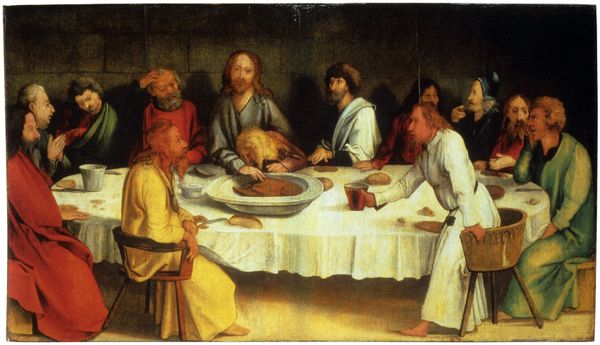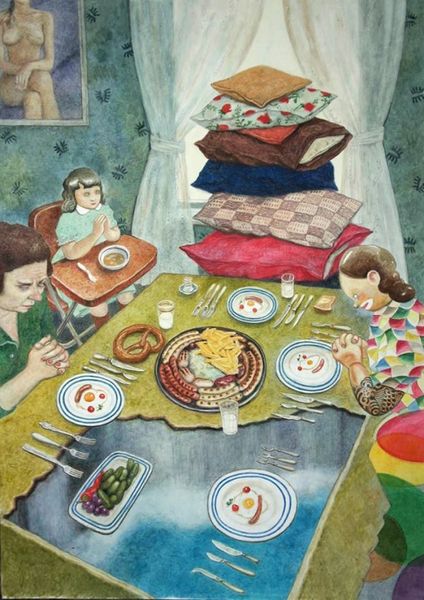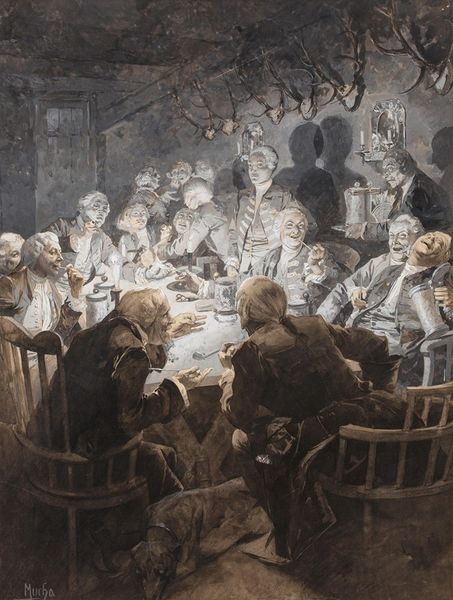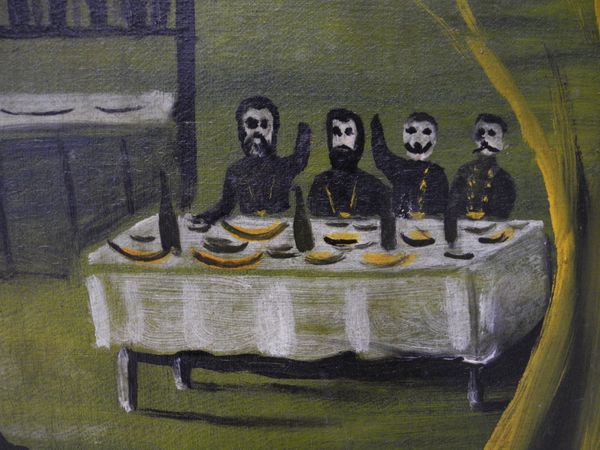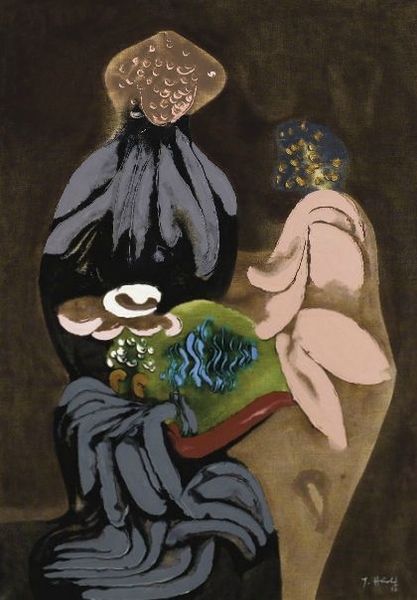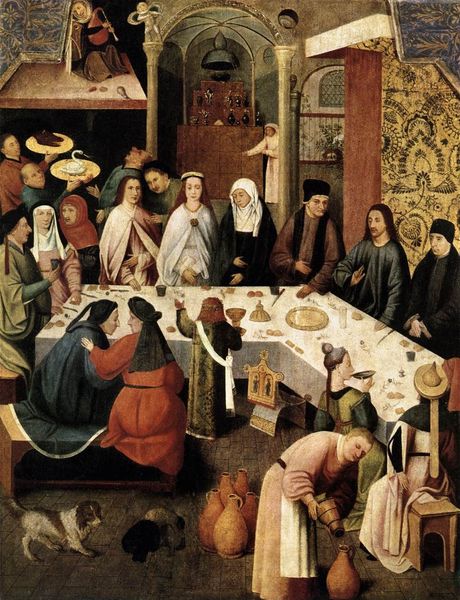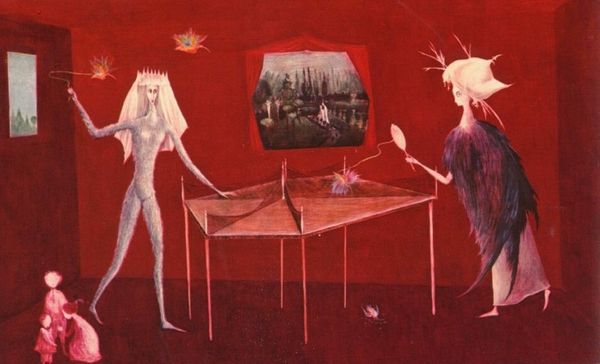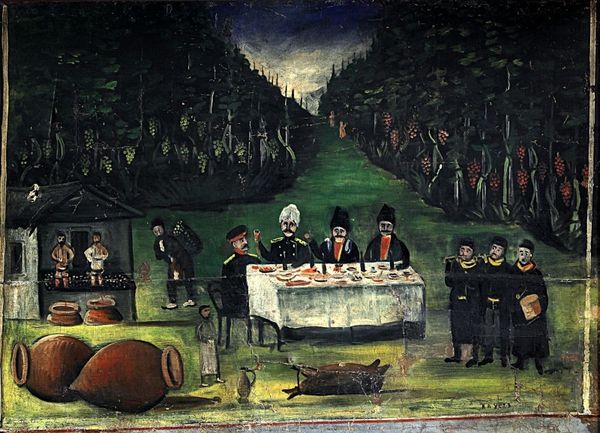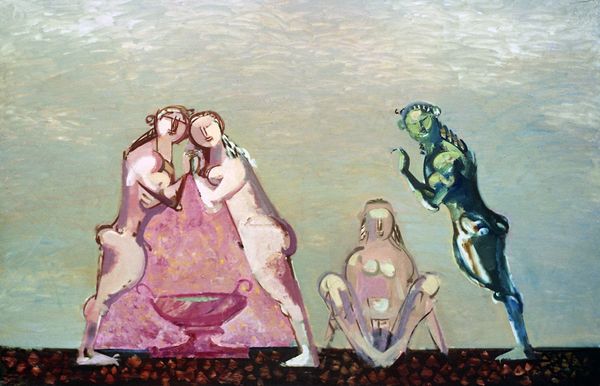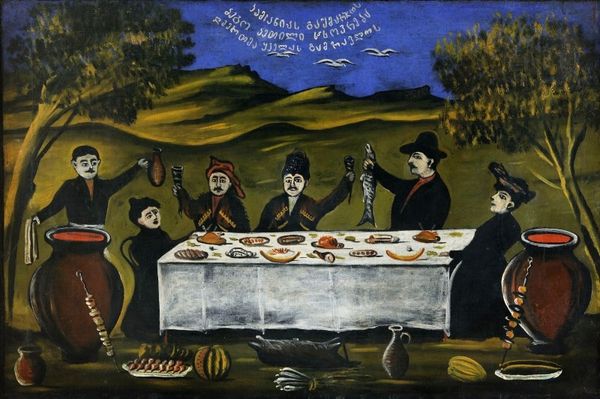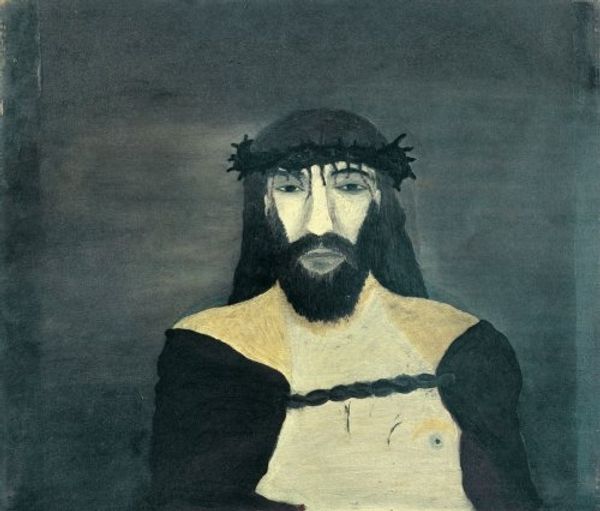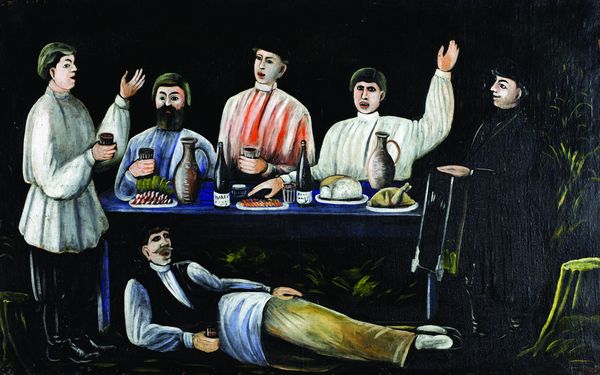
mixed-media, painting
#
mixed-media
#
contemporary
#
painting
#
graffiti art
#
modern-moral-subject
#
street art
#
mural art
#
painting art
#
mixed media
Copyright: Fair Use
William Hawkins made "Last Supper #6" with paint on board. Hawkins was a self-taught artist born in Kentucky in 1895, and his paintings often drew inspiration from religious imagery. Here, Hawkins presents his interpretation of the famous scene of the Last Supper. The way Hawkins renders this scene is particularly striking. He flattens the perspective, creating an almost chaotic composition, and there is a strong folk art aesthetic. We can see the influence of religious traditions in the American South during the time it was made. Black churches in the South often fostered unique interpretations of biblical stories, blending them with African spiritual traditions and lived experiences of segregation. Further research into the religious landscape of the American South during the 20th century, as well as studies of self-taught artists, can provide deeper insights into the cultural significance of Hawkins' work. The meaning of this painting is rooted in a specific socio-cultural context.
Comments
No comments
Be the first to comment and join the conversation on the ultimate creative platform.
